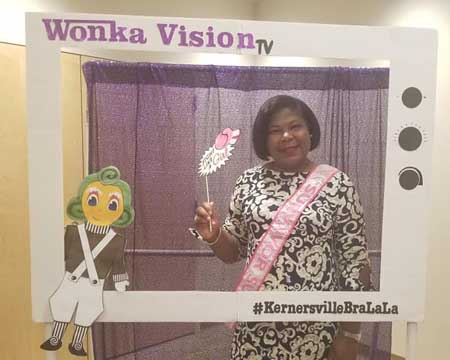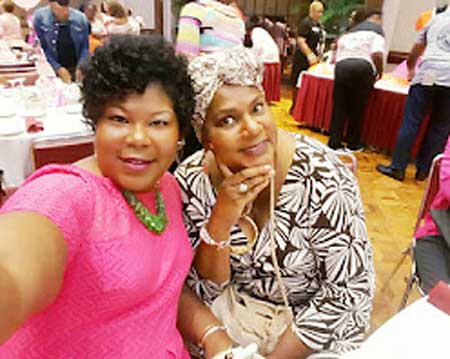‘A mammogram is the gift of life’
After a battle with breast cancer, Dr. Karen Morning Roseboro is a believer in the power of early detection to save lives.
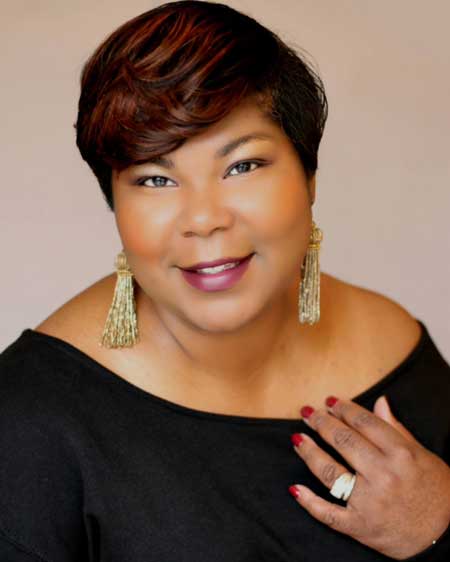
Our survivor: Karen Morning Roseboro, the chief officer for choice and magnet schools for Winston-Salem Forsyth County Schools. Roseboro, who has a doctorate in education, is celebrating four years as a breast cancer survivor, and her journey began with her first-ever mammogram at the age of 40.
“My husband threw me a 40th birthday party. It was the best house party ever. I had a DJ. I was dressed to the nines. It was sparkle city at my house. However, I knew I had to have my mammogram,” Roseboro recalled. “I always kind of knew it was something I was going to be fearful of because my sister had breast cancer, and, at the time, I had just lost a close colleague and friend who had two small children to breast cancer. But I went, the week after my 40th birthday.”
Her diagnosis: When Roseboro arrived for her mammogram, there were two women in the waiting room who were listening as she was offered a choice between a traditional mammogram and a 3D mammogram. They seemed to sense Roseboro was scared and unsure. They encouraged her to opt for the 3D mammogram to get a more comprehensive screening, and she did.
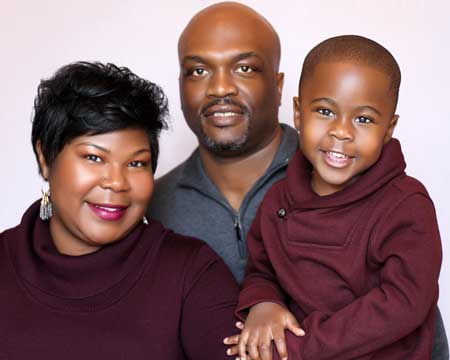
It was the first time guardian angels played a role in her cancer journey, but it was not the last.
A few weeks later, she got a letter indicating her mammogram results were abnormal. Her mother assured her that was fairly common among African American women, who tend to have dense breast tissue. So she went back for further testing — and met another pair of women, a mother and a daughter, in the waiting room who took Roseboro under their wing.
They knew the drill of the follow-up breast exam, and they told Roseboro they were going to take a closer look at her breasts. If, after the exam, the doctor asked Roseboro to sit in a specific chair in the exam room, it was probably bad news and she would need to brace herself.
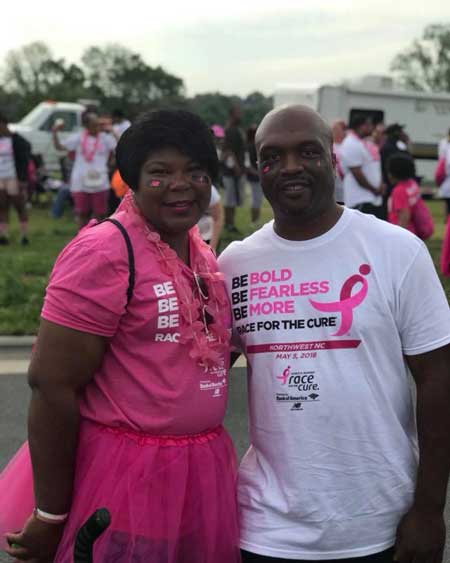
“Sure enough, they sat me in the chair, and I knew they’d seen something,” Roseboro said. “I walked out of the breast imaging clinic feeling defeated. I was in shock.”
The medical team wanted to perform a stereotactic biopsy to understand if what they had seen was cancerous. The results confirmed Roseboro had stage 0 breast cancer.
“When my doctor gave me the diagnosis, she said, ‘To us, stage 0 is a gift. You’re in the early stages, and you caught it. It’s women like you who can inspire others about the power of early detection. Yes, it’s scary, but you did it and you’re here now,’” Roseboro said.
Her treatment: At the time of her diagnosis, Roseboro’s doctors told her they wouldn’t be able to save her breast. She elected instead to have a bilateral mastectomy with reconstruction and, after that, began 40 rounds of radiation to ensure the cancer was gone.
“I stayed out of work for a little bit, and then I would work half days because I wanted to stay busy. I just couldn’t sit home and think about cancer,” Roseboro said.
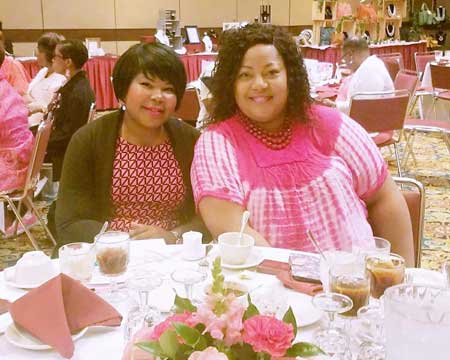
But the work alone wasn’t enough of a distraction. Roseboro struggled with her new reality, and her doctors took notice.
“They said, ‘Karen, I’m going to put you in contact with a breast health mentor — someone who has gone through what you’re going through. Maybe it will help give you some clarity,’” she said.
They connected her to a woman in her late 30s who was waging her fourth battle against cancer. She was a single mother caring for two sons. She was full of energy, and her laugh was contagious.
“I started thinking, ‘I really need to get over myself,’” Roseboro recalled with a laugh. “This lady was speaking life to me. I started to realize, this is not a death sentence. I’m going to survive this.”
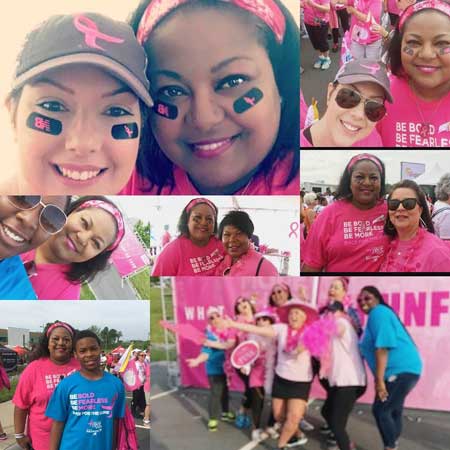
The two women spent time together. They laughed a lot, talked about their kids and started swimming together as a way to combat the swelling in their arms and legs. Not long after they met, Roseboro’s mentor lost her battle, but her life left a lasting impact.
“If it wasn’t for her, I don’t think I would have gotten well. I don’t think I could’ve talked about my battle with cancer,” Roseboro said. “Before she passed, we had always talked about how we needed to bring together a group of women like us who understand what it’s like to feel like you have the weight of the world on your shoulders. We talked about creating a breast health network that would help women know there were other women out there thinking about you and supporting you.”
Her mission: After her mentor passed away, Roseboro put those thoughts into action and created the Pink Morning Breast Health Network, which supports women of color who are living with the impact of breast cancer and promotes the power of early detection. On Oct. 16, Pink Morning will host a virtual tea party to educate women about breast health outreach programs and encourage mammogram screenings. The event will also raise funds for the Novant Health Forsyth Medical Center Foundation Think Pink Fund.
“Yes, COVID is here, but cancer is here, too, and there are some women out there in the midst of a pandemic and going through cancer who need our help, need our support, need to know there are folks out there who can provide additional resources for them when they’re in need,” Roseboro said.
Her message: In her career and in her battle against cancer across the community, Roseboro believes in the power of education.
“We don’t have to lose as many women to cancer as we have. If we do a better job of taking care of ourselves and educating ourselves and surrounding ourselves with loved ones, we can do a better job of ensuring survivorship,” Roseboro said. “A mammogram is the gift of life. So I’m just hoping and praying that we can turn all these tragedies into triumph stories.”
Give a lifesaving mammogram today.
You can do your part for women in your community by making a contribution through Novant Health Forsyth Medical Center Foundation. A gift of $250 is all it takes to provide a lifesaving mammogram to women in need.
